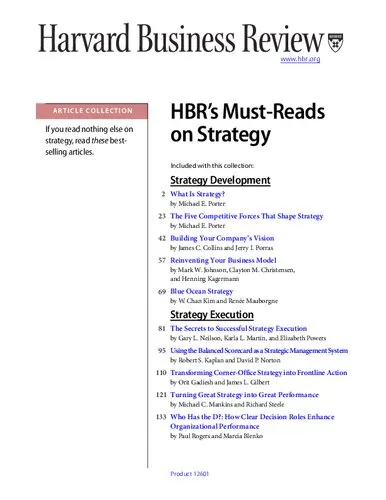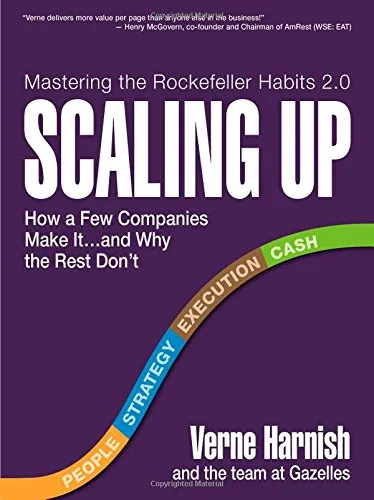Managing Data as a Product
4.6
بر اساس نظر کاربران

شما میتونید سوالاتتون در باره کتاب رو از هوش مصنوعیش بعد از ورود بپرسید
هر دانلود یا پرسش از هوش مصنوعی 2 امتیاز لازم دارد، برای بدست آوردن امتیاز رایگان، به صفحه ی راهنمای امتیازات سر بزنید و یک سری کار ارزشمند انجام بدینکتاب های مرتبط:
خلاصه تحلیلی کتاب
کتاب Managing Data as a Product اثری استراتژیک و تحلیلی است که خواننده را به دنیای نوینی از مدیریت دادهها با رویکرد محصولمحور وارد میکند. نویسنده با درک عمیق از تحولات دیجیتال، نشان میدهد که چگونه دادهها، فراتر از یک منبع خام، به محصولاتی با ارزش اقتصادی، عملیاتی و استراتژیک تبدیل میشوند.
نویسنده مراحل تبدیل داده به محصول را با زبانی روشن و نمونههای عملی بیان میکند. او به چالشهایی مانند Data Quality، Data Ownership و Lifecycle Management پرداخته و توضیح میدهد چگونه سازمانها میتوانند با رویکرد صحیح، ارزشآفرینی پایدار ایجاد کنند. این کتاب با حذف نگاه صرفاً فنی به داده، آن را در بستر نیاز واقعی کسبوکارها و تصمیمگیری مدیریتی قرار میدهد.
هر فصل بر مبنای تجربههای واقعی تدوین شده است تا خواننده جدی، پژوهشگر یا مدیر بتواند مفهوم «داده به عنوان محصول» را نه تنها تئوریک، بلکه در میدان عمل بهکار گیرد. این چارچوب فکری بهویژه برای شرکتهایی که Data Strategy را در اولویت قرار دادهاند، ابزاری کلیدی است.
نکات کلیدی و کاربردی
این کتاب مجموعهای از بینشها و راهکارهای اجرایی را برای مدیریت اثربخش دادهها ارائه میدهد. برخی از نکات برجسته عبارتاند از:
۱. تعریف دقیقی از Data Product و تفاوت آن با Data Asset سنتی، نشان میدهد که محصولسازی دادهها، مستلزم تفکر طراحی و مشتریمحوری است.
۲. اهمیت Data Governance و استانداردسازی دادهها نه فقط برای کاهش ریسک، بلکه برای افزایش قابلیت استفاده و مقیاسپذیری.
۳. چرخه عمر دادهها و نقش تیمهای بینوظیفهای (Cross-functional teams) در تضمین کیفیت و ارائه بهموقع دادهها.
۴. نقش شاخصهای عملکرد کلیدی (KPIs) در سنجش موفقیت محصول داده و همسویی آن با اهداف سازمان.
۵. بررسی موانع فرهنگی و سازمانی که ممکن است مانع پیادهسازی موفق این رویکرد شود و راهکارهای پیشنهادی برای عبور از آنها.
نقلقولهای ماندگار
این کتاب دارای فرازهایی است که خواننده را به تفکر عمیقتر درباره جایگاه داده در سازمان وادار میکند. برخی از جملههای بهیادماندنی عبارتاند از:
«زمانی که دادهها را بهعنوان محصول ببینیم، کیفیت و تجربه کاربر بهاندازه محتوا اهمیت پیدا میکند.» نامشخص
«داده خام به تنهایی ارزشی ندارد؛ فرایند تبدیل آن به محصول است که ارزش میآفریند.» نامشخص
«مدیریت داده یک پروژه نیست؛ یک تعهد بلندمدت سازمانی است.» نامشخص
چرا این کتاب اهمیت دارد
در عصر حاضر که داده به سرمایه اصلی سازمانها بدل شده، رویکرد سنتی به مدیریت داده دیگر پاسخگو نیست. Managing Data as a Product با معرفی مدلی عملیاتی که ترکیبی از تکنولوژی، فرآیند و فرهنگ سازمانی است، به شرکتها کمک میکند تا دادهها را به جای یک خروجی جانبی، به یک دارایی راهبردی و ارزشآفرین تبدیل کنند.
این کتاب برای پژوهشگران حوزه Data Science نیز منبعی الهامبخش است، زیرا با قرار دادن داده در بستر محصولمحور، مسیر تحقیق و توسعه را شفافتر میسازد. همچنین مدیران ارشد فناوری (CTO) و مدیران محصول داده، میتوانند از ایدهها و چارچوبهای مطرحشده برای بهبود تصمیمگیریهای کلان استفاده کنند.
یکی دیگر از دلایل اهمیت کتاب، پرداختن به موضوع تحول فرهنگی در سازمانهاست. زیرا بدون پذیرش فرهنگ «داده به مثابه محصول»، هیچ چارچوب مدیریتی دوام نخواهد داشت. نویسنده تاکید میکند که موفقیت در این مسیر، نیازمند همگرایی بین تیمهای فنی، تجاری و تصمیمسازی است.
Analytical Summary
In Managing Data as a Product, readers are invited to explore a paradigm shift in how organizations conceive, design, curate, and deliver data. Written by Andrea Gioia, this work positions data not merely as a passive asset or a byproduct of operations, but as a core product—requiring rigorous lifecycle management, dedicated ownership, and continuous quality improvement.
The book blends practical frameworks with conceptual rigor, making it suitable for both seasoned data professionals and academics researching enterprise information systems. Grounded in industry experience and lean product thinking, the text dismantles outdated data management approaches that focus narrowly on storage and processing, advocating for a more holistic, product-oriented mindset.
Covering themes such as organizational alignment, governance models, metadata management, and value delivery, Managing Data as a Product teaches that data should be nurtured with the same customer-centric focus given to physical or digital products. The author emphasizes that data teams must adopt product management disciplines, from discovery and design to launch and iteration, aligning these with enterprise data strategy.
Information about the publication year and any awards is unavailable, as no reliable public source currently confirms these details. Nevertheless, the content’s relevance is underscored by the increasing market demand for scalable, high-quality data solutions in analytics-driven organizations.
Key Takeaways
The core insights from Managing Data as a Product are both strategic and actionable, offering a blueprint for transforming data assets into value-driving products.
Readers will understand the imperative of defining product owners for datasets, ensuring accountability and quality standards comparable to commercial offerings.
The text underscores the importance of measuring product success through data usability, user satisfaction, and tangible business impact—metrics that transcend technical performance indicators.
Gioia advocates for integrating data product management into the enterprise data strategy, fostering synergy between technology, governance, and user experience.
The book illustrates that well-managed data products ultimately support innovation, agility, and trust in digital ecosystems.
Memorable Quotes
“Treat every dataset like a product, and every user like a customer.” Unknown
“Data quality is not a technical metric—it’s a measure of trust.” Unknown
“Ownership transforms data from raw potential to realized value.” Unknown
Why This Book Matters
Managing Data as a Product is essential reading for any professional engaged in data-intensive fields. Its framework offers clarity in a domain often clouded by fragmented responsibilities and technical overemphasis.
By contextualizing data within a product management framework, the book bridges the gap between IT functions and business objectives. This alignment is critical for the success of enterprise data strategies, ensuring that data products deliver measurable outcomes.
With actionable advice and a strong conceptual foundation, this work empowers readers to rethink data ownership, amplify governance effectiveness, and build systems that are both technically sound and user-focused.
Inspiring Conclusion
In a world where information drives innovation, Managing Data as a Product calls for a transformative shift in mindset. By cultivating data as a meticulously managed, customer-centered product, organizations can unlock unprecedented speed, relevance, and trust.
Whether you are a data leader, academic, or practitioner, the principles outlined in this book challenge you to elevate your approach—no longer settling for ad-hoc datasets, but striving for data experiences that delight and deliver. The journey begins when you choose to treat data like the vital, living product it truly is.
Your next step? Immerse yourself in Managing Data as a Product, share its lessons with your peers, and discuss how these concepts can reshape your organization's data future. The change you spark today will define the competitive edge of tomorrow.
دانلود رایگان مستقیم
شما میتونید سوالاتتون در باره کتاب رو از هوش مصنوعیش بعد از ورود بپرسید
دسترسی به کتابها از طریق پلتفرمهای قانونی و کتابخانههای عمومی نه تنها از حقوق نویسندگان و ناشران حمایت میکند، بلکه به پایداری فرهنگ کتابخوانی نیز کمک میرساند. پیش از دانلود، لحظهای به بررسی این گزینهها فکر کنید.
این کتاب رو در پلتفرم های دیگه ببینید
WorldCat به شما کمک میکنه تا کتاب ها رو در کتابخانه های سراسر دنیا پیدا کنید
امتیازها، نظرات تخصصی و صحبت ها درباره کتاب را در Goodreads ببینید
کتابهای کمیاب یا دست دوم را در AbeBooks پیدا کنید و بخرید
1613
بازدید4.6
امتیاز0
نظر98%
رضایتنظرات:
4.6
بر اساس 0 نظر کاربران
Questions & Answers
Ask questions about this book or help others by answering
No questions yet. Be the first to ask!














